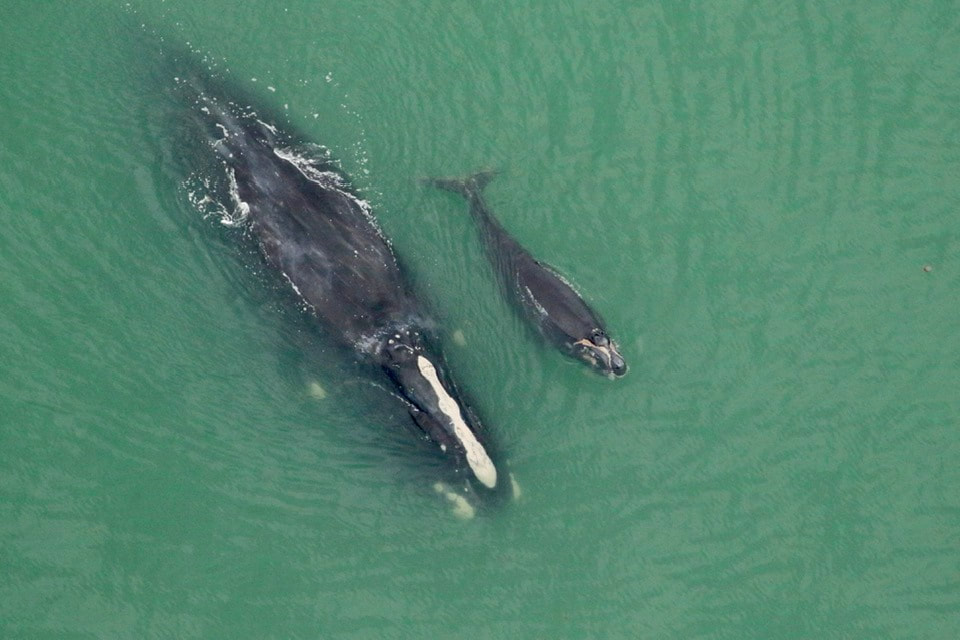|
A critically endangered right whale was recently spotted with a newborn calf off the coast of Georgia, according to a post made today by the Florida Fish and Wildlife Conservation Commission's Research Institute (FWC). The mother whale, cataloged under the name 'Halo', welcomed her newborn 'Jagger' to the coast of Cumberland Island, Georgia on December 28, 2023. FWC staff state that Halo is 19 years old, and last gave birth four years ago during the 2020 calving season. Listed as endangered under the Endangered Species Act since 1970, only approximately 360 individual right whales remain, and the population has continued to decline at an unsustainable rate — largely due to human impacts. According to the National Oceanic and Atmospheric Administration (NOAA), fewer than 70 of those are reproductively active females. While the NOAA reports that new calves born in recent years have been below average, the birth of calf Jagger offers a glimmer of hope for the conservation of the critically endangered Right Whale species as the 6th calf to be born this season, and the 3rd calf to be born to Halo. Will Halo bring her 3rd calf to Florida? Only time will tell; however, the FWC says she has been spotted in the past frequenting the coastal waters of central Florida by beachgoers. Right Whales are recognizable by their stocky black bodies with no dorsal fins and 'V'-shaped blow spouts, as well as broad, deeply-notched tails with a smooth edge. The species is known to utilize the waterways along the entire East Coast of Florida, but are most often sighted in the northern and central Florida regions. Many sightings of Right Whales have been reported off St. Johns County, Flagler, Volusia, Brevard, and areas south are known to occur near shore and may be visible from land. Because of this, volunteer-based organizations in these areas work to inform the public about rights whales, their calving habitat, do's and don'ts for viewing them, and the unique connection local communities share with these critically endangered large whales. The FWC says these volunteer networks teach citizens how to spot whales from shore and encourage the public to report whale sightings in real-time, further helping them to become part of a vast network of collaborative Right Whale research that spans from Canada to Florida. Those looking for Right Whale volunteer opportunities or wanting to learn more about the volunteer sighting networks are encouraged to visit the Blue World Research Institute's Right Whale Sighting Network and the Marineland Right Whale Project Blog. Public Right Whale sightings in Florida can be reported to the volunteer sighting network by phone at 888-979-4253 or through the NOAA hotline at 877-WHALE-HELP (877-942-5343. You can also view verified Right Whale sightings using WhaleMap here. Article by Rachael Volpe
0 Comments
Your comment will be posted after it is approved.
Leave a Reply. |
CATEGORIES |
|
|
Vertical Divider
|
Can't get enough?Uncover more of Florida through our channels below!
|
© COPYRIGHT 2015. ALL RIGHTS RESERVED.


 RSS Feed
RSS Feed